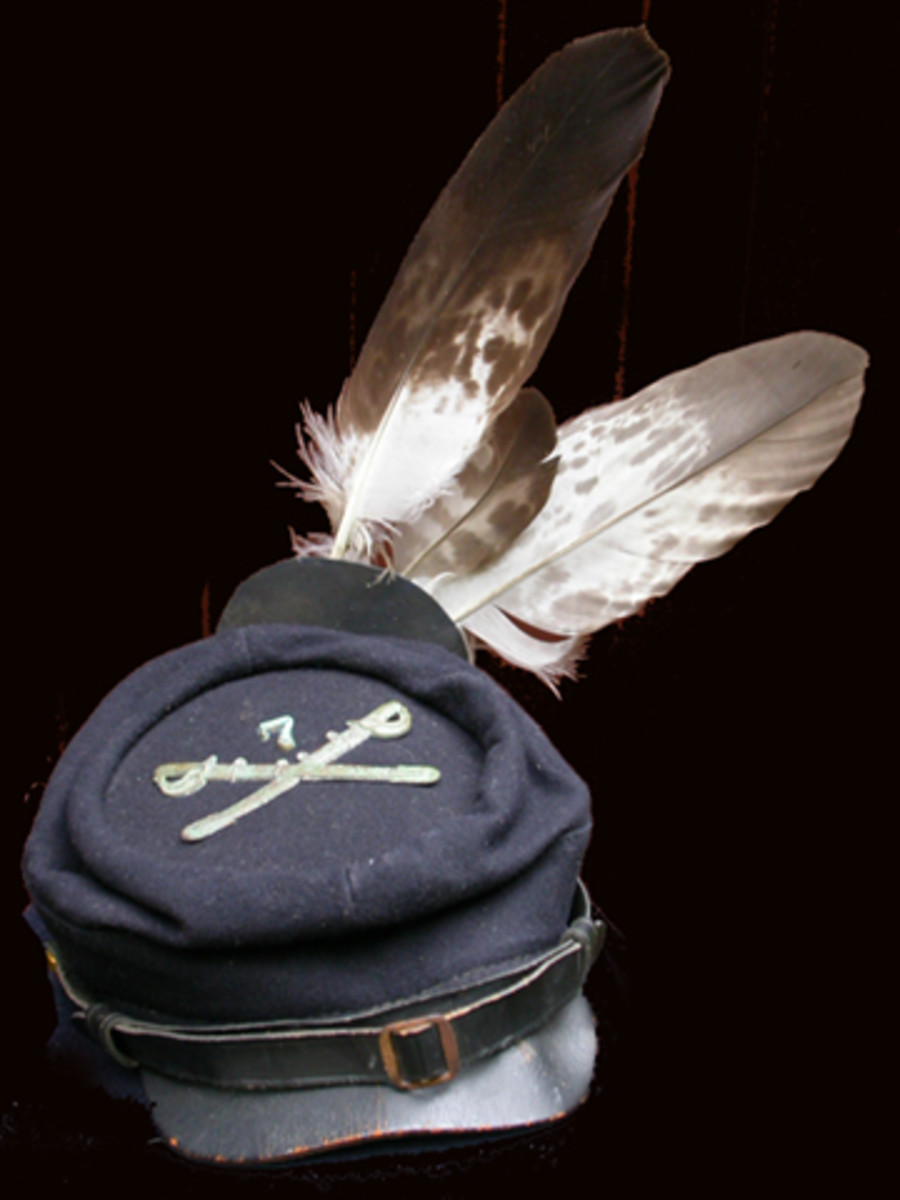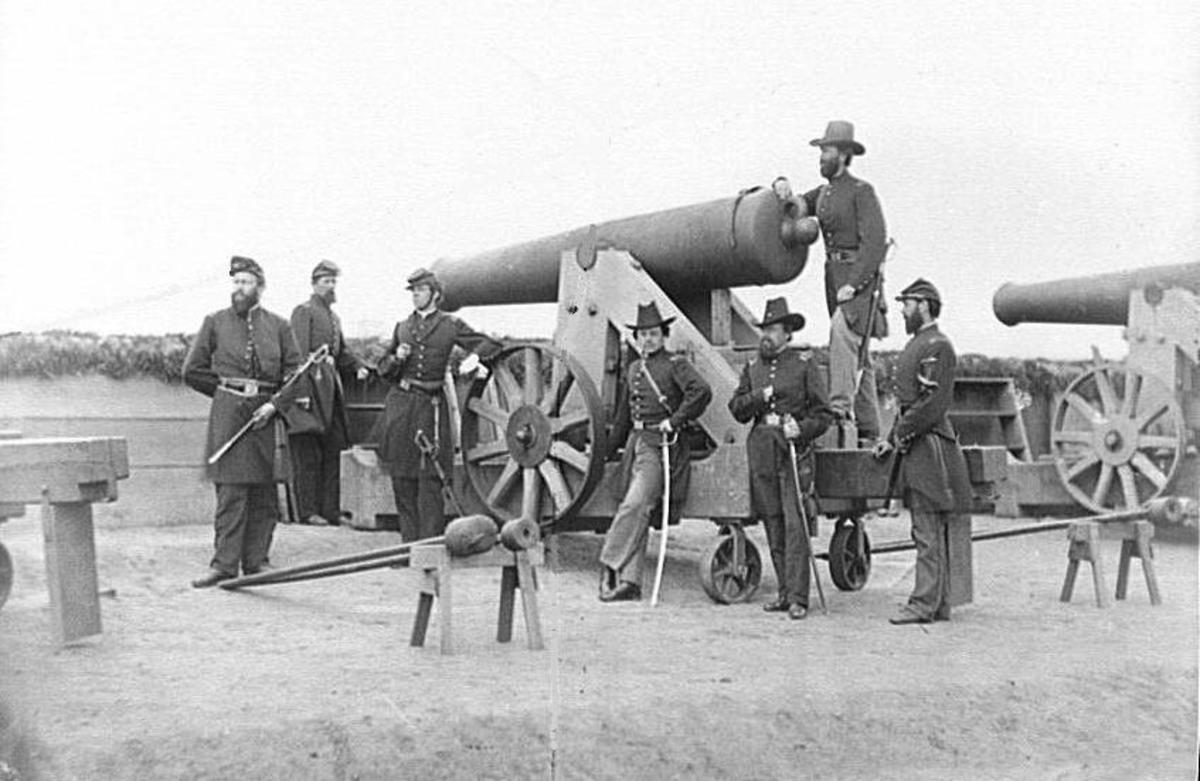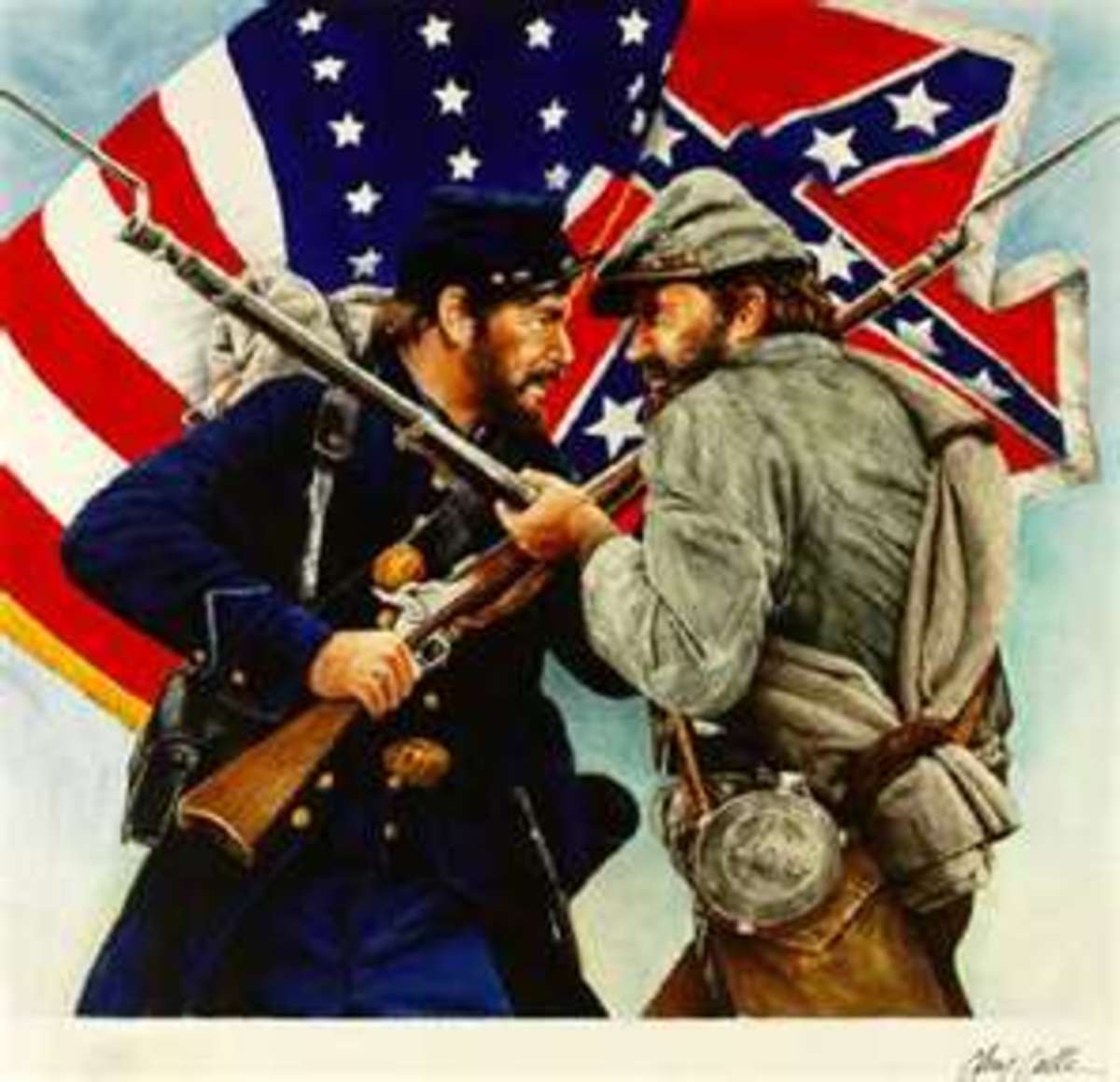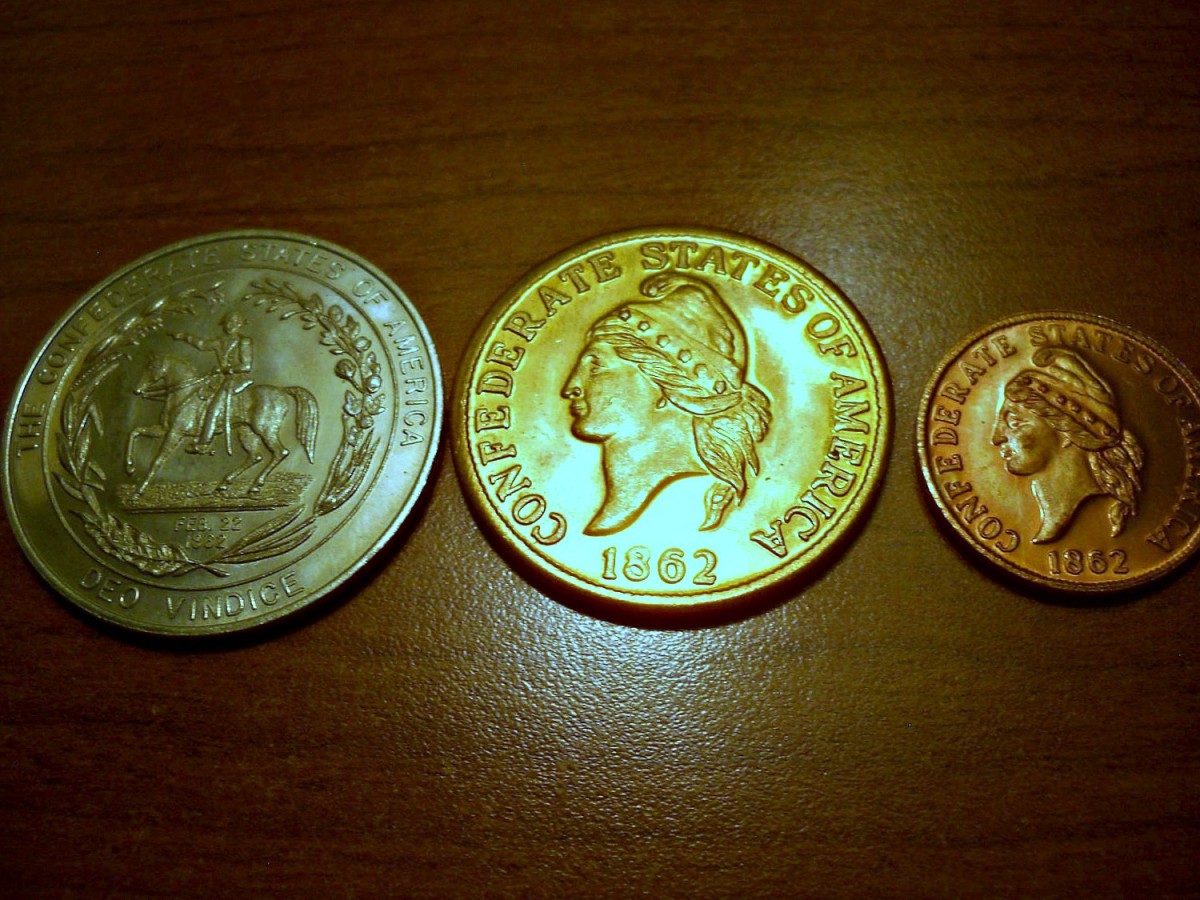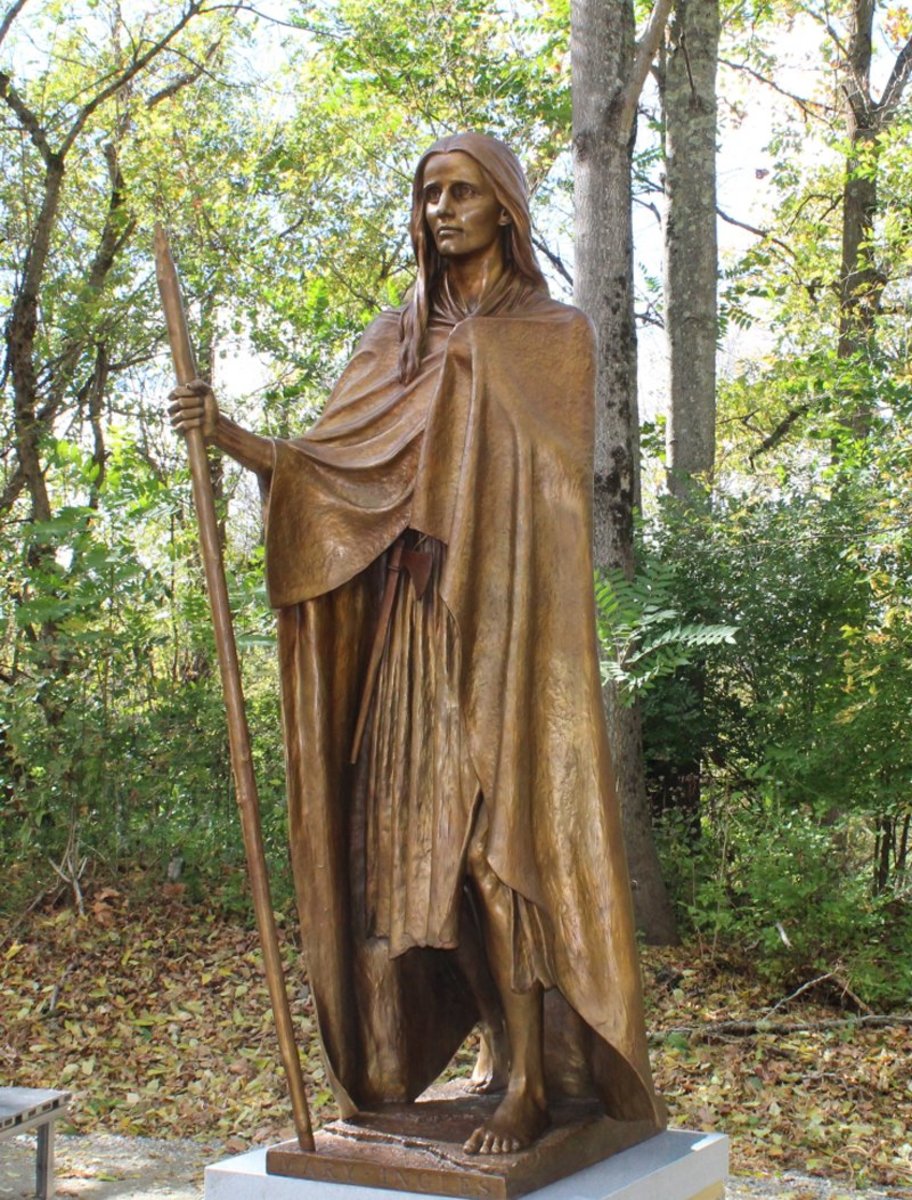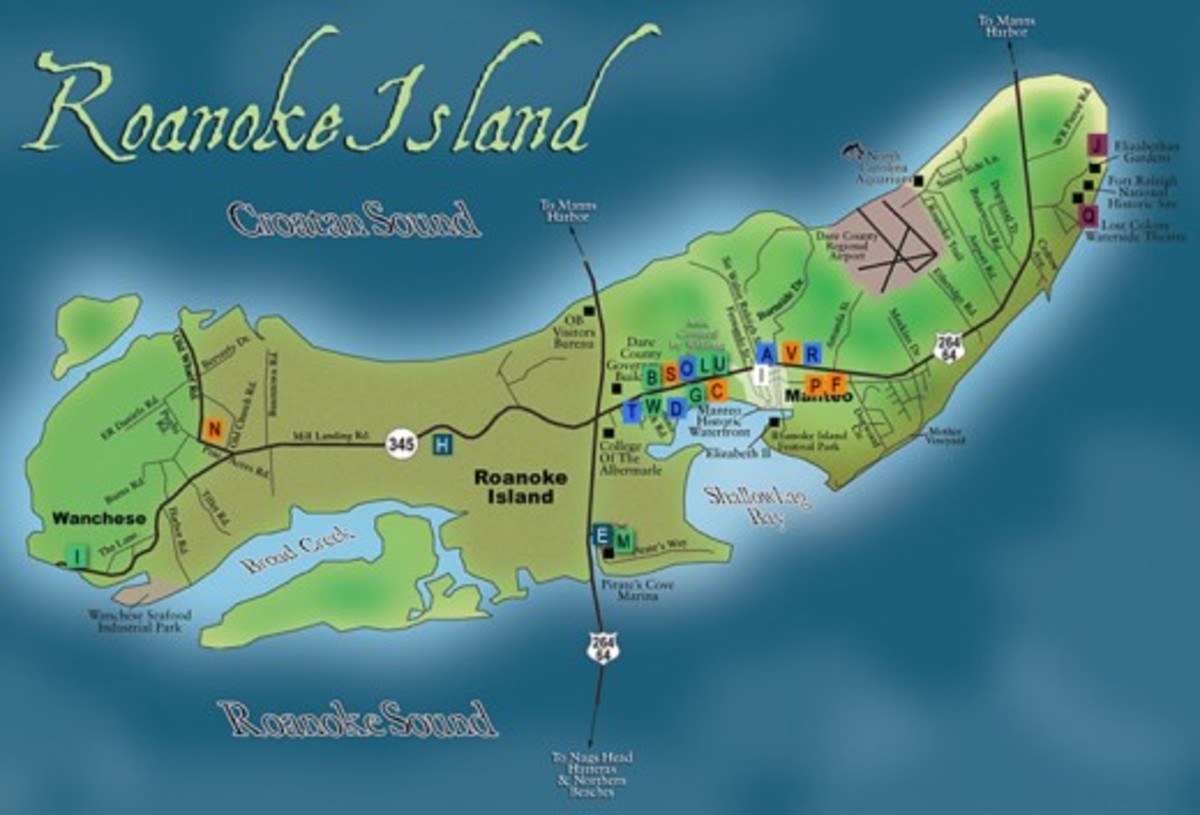- HubPages»
- Education and Science»
- History & Archaeology»
- History of the Americas
What Would America be if the South Had Won the Civil War?
A big gun used in the American Civil War
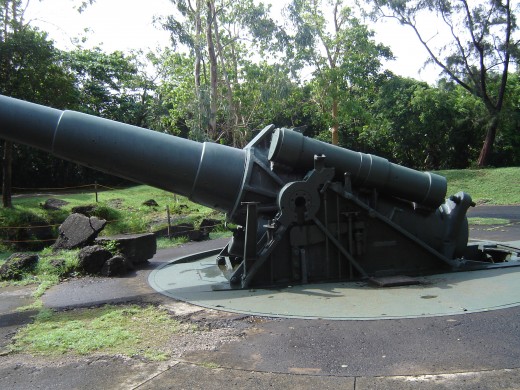
Two nations would stand: Confederate States of America and United States of America
I think there are three questions here "How would America be different if the South had won the Civil War?" ; "How Would Confederate States of America Be If It Won the Civil War?" I prefer this latter question as it affords more speculation. My answers for these two questions will be mixed with more focus on Confederate State of America (CSA). One implied premise of the first question is that the South was fighting to make the North part of its territory. The first question might be revised into "How would the USA be different if the South had won the Civil War? To this question, the USA would be as it is now plus some other features. It is not amenable to a wide field of speculation. The third question is: Would CSA and USA eventually unite? I assume civil war means American Civil War.
If it won the American Civil War, CSA would be left alone as a new country since its inception in February 1861. The United States of America (USA) would stay as another nation. USA would differ from the CSA that would have the following features:
CSA, or South, would have 11 states as territory, the USA, or North, would have at least 23 and counting as it was on the verge of empire building toward the Pacific.
In CSA, each state would be more sovereign than the CSA. Each state would contribute to the financing of the CSA according to its wishes.
Under CSA, the Tennessee Valley Authority would not be possible as it involves several states, or difficult to set up. Each state inundated by the great flood would decide to join TVA or not. The president of CSA could not just create it by presidential fiat as Pres. F.D Roosevelt did. Similarly, the vaccination with Salk polio vaccine or the Sabin oral vaccine would be difficult to implement if a nationwide vaccination were planned. In the USA, when Dr. Salk and his team were still developing the Salk vaccine there was a congressional hearing to thresh out the problem of interstate vaccination.
[The Tennessee Valley Authority bill was first passed (sponsored by George Norris, a rebel Republican from Kansas) in the US congress during the time of President Herbert Hoover. Hoover vetoed it. However, congress passed it again with two-thirds vote. It was qualified for another round with the president of the US. This time Hoover (a Republican) was already out and President F. D. Roosevelt (a Democrat) was now president. Pres. Roosevelt signed it into law (Norris, G. The Fighting Liberal. 1961). However. it was threatened with unconstitutionality by the Supreme Court that is why Pres. Roosevelt wanted congress to increase the number of justices from nine to fifteen for which he was accused of packing the court. Fortunately, the Supreme Court came around in support of Pres. Roosevelt and the TVA.]
There would be no Confederacy tax in CSA. Already, during the American Civil War, South states resisted taxation. Only 1% of taxes due could be collected, owing partly to lack of mechanism of collection.
There would still be slaves in CSA. One of the main reasons for seceding from the USA was to protect state's right to own slaves.
The South would lag behind as a primarily agricultural nation with cotton as the main export.
For sometime, CSA would have been immature politically. During the civil war there was only one party in the South; Pres. Jefferson Davis was elected provisional president for six years There was no reelection in the South during the civil war. In the North, Lincoln was reelected during the civil war.
The balance of trade between the CSA and USA would favor the USA as it was economically better off, with more industries, more railroads and with advanced labor employment, more gold bullion to back up its currency. There would be a higher inflation rate in CSA owing to limited taxation and less income from exports as cotton comprised 50% of its export. It would issue currency bills out of the printing press without adequate gold back up and trigger high inflation. During the civil war, the inflation rate in CSA was 9,000% while that in the USA was only 117%. A lot of the assets of the South would be comprised of slaves who were considered as property.
CSA would have difficulty in diplomacy and in foreign trade. Major world powers like France, England and Russia had already abolished slavery. It would be a diplomatic embarrassment if they dealt with the South. France and England could have cotton by growing it in other countries, like Egypt as Britain did during the civil war. Still, the South would be primarily a market for industrial goods of France, England, Germany and other European nations. The CSA would have to contend with a high if not discriminatory tariff wall with the USA.
The president of CSA would be a more powerful, if inept, chief of the armed forces than that of the USA. During the civil war, the CSA congress created the position of general of the army designed for Gen. Robert Lee so that he could have more elbow room for running the army and win the war. Pres. Davis rejected it. Pres. Davis was his own commander in chief for 14 months; Gen. Lee for only 13 months for the duration of the civil war; still he was hamstrung. Reinforcements for Gen. Lee's army, which was actually the CSA overall army, would require the approval of Pres. Davis. Whereas, Lincoln did not meddle with such matters, even with his generals whom he had replaced like Gen. McClellan. Gen. Lee could not get reinforcements for his army in Virginia when Gen. Ulysses Grant erected a siege; in nine months of the siege when his soldiers laid prostrate and horses were falling off, he surrendered his army to Gen. Grant without the approval of Pres. Davis who was captured two months later.
The CSA president could not have a blanket veto but item-by-item veto in legislation as it was during the civil war.
The CSA president would have a limited power to declare marshal law and suspend the writ of habeas corpus.
To the third question, Would the CSA and USA eventually unite? The premise is that the North is more advanced than the South and the North could get more concessions than the South. No, unless the South abandoned the causes for which it seceded in the first place; likewise, unless the USA were willing to reconstruct the South.
Even during the civil war, there was already a disagreement as to the policy the North would take if it won the war. War Secretary Joseph Stanton wanted the South punished and make the South a subaltern. Virtually no amnesty for the South. Lincoln did not agree; he wanted reconciliation. President Johnson who succeeded the assassinated Lincoln carried out Lincoln's policy; so did Gen. Grant when he was elected president.
Gen. Lee availed of the amnesty and became president of a university; President Davis did not. He was jailed for several years; he wanted the case of treason lodged against him to be tried. He might have hoped that he could still justify the cause of CSA. He was readmitted as American citizen only recently. He was pardoned posthumously by President Jimmy Carter on October 17,1978..
Even as the North won the civil war, it was burdened with the reconstruction of the South; or rather, the South remained poor.
"...During the last half of the nineteenth and the first half of the twentieth centuries, when technology was multiplying American abundance with unprecedented rapidity, the South lagged far behind. In 1880 the per capital wealth of the South, based on estimated true valuation of property, was $376 as compared with $1,186 per capital in the states outside the South. In the same year the per capita wealth of the South was 27 percent of that of the Northeastern states...."(Woodward, C. Van. "Was the south a unique section in American history?": Taking Sides.1987:286).


